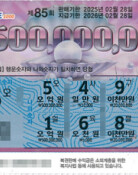Strong penalty needed to eradicate borrowed-name account
Strong penalty needed to eradicate borrowed-name account
Posted August. 08, 2013 04:51,
Corruptions using borrowed-name bank accounts at savings banks have reached a cumulative 6.75 trillion won (6.04 U.S. billion dollars) since 2006. According to data from Financial Supervisory Service, 2,383 corruption cases using borrowed-name bank accounts were uncovered during this period. Banks and insurance firms, whose size is much bigger than savings banks, are estimated to hold billions of dollars of money at borrowed-name accounts.
CJ Group Chairman Lee Jay-hyun, who was recently arrested for tax evasion and fleeing assets abroad, used hundreds of borrowed-name accounts in managing secret funds. Former President Chun Doo-hwan and his family borrowed name of a homeless person to hide assets. It was found that more than 7,000 borrowed-name accounts have been used during an investigation of Taekwang Group corruption in 2011. Tax evasion, creation of secret funds, money laundering and illegal property inheritance using borrowed-name accounts are abundant. Assets in borrowed-name accounts reached 31,502 cases and 4.73 trillion won (4.2 billion dollars) in 2011.
Monday marks the 20th year since the launch of the real-name financial transaction system. In 1993, then President Kim Young-sam issued an emergency order of launching the system that hugely served to reduce political, economic and social corruptions. However, there are weak spots to be looked out for. This is necessary to help President Park Geun-hye`s commitment to legalize underground economy.
Under the current law on real-name financial transaction and guarantee of secrecy, a financial firm should identify the name of an individual who opens a bank account. Financial firms that violate this pay up to 5 million won (4,474 dollars) in penalty, which is minimal at most. There is no regulation to punish a person who makes borrowed-name account or who lent the name. To prevent illegal activities by using borrowed-name accounts, there should be stronger punishment against people who made the account and those who lent it, as well as financial firms.
Many bills aimed to strengthen the real-name financial transaction law are on the table ahead of the National Assembly meeting in September. Among them are a bill to ban borrowed-name transaction and claim for return of money when the actual bank account owner appears, and a criminal punishment and penalty against transactions under borrowed name.
Some voice concerns that an overall ban on borrowed-name account could hurt well-intentioned people and contract financial transactions. Currently, low-income people make bank accounts under family name when their deposit tops the 50 million won (44,743 dollars) ceiling. Some collect dues for clan gathering under their names. Banning borrowed names could cause financial crimes to flourish as more people will use cash. Politicians should devise bills considering these issues.







